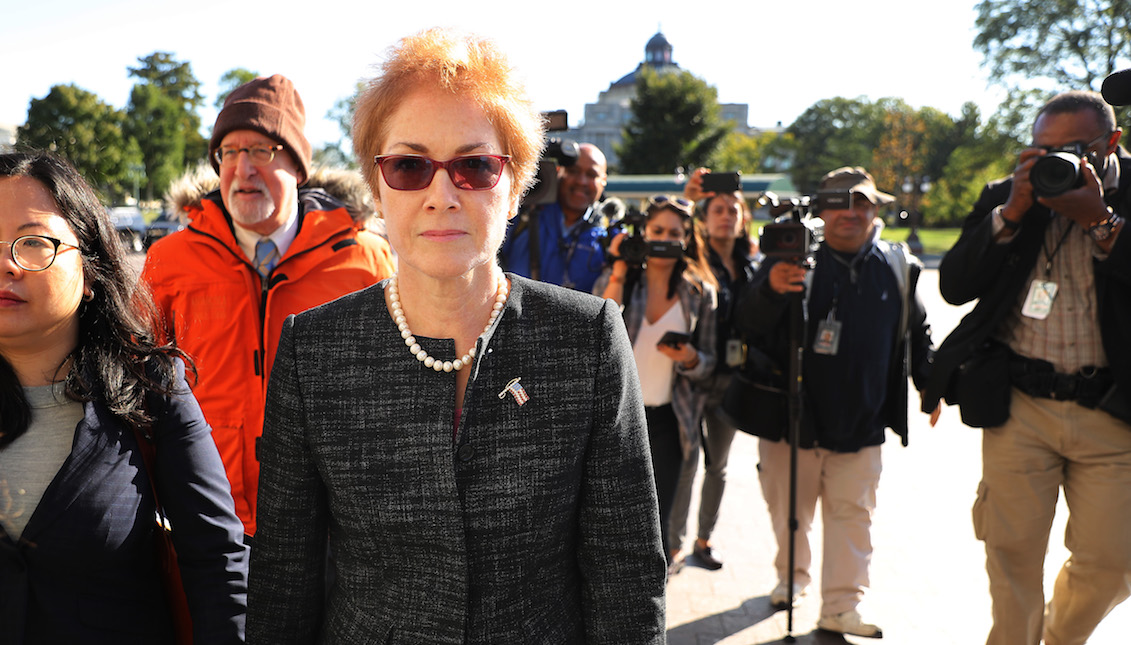
Today on impeachment: How the will of a few is breaking the White House’s stonewalling
A handful of witnesses have decided to challenge the White House and collaborate with the political investigation against President Donald Trump.
Keeping track of President Donald J. Trump's impeachment proceedings is virtually impossible. Not only because of the convoluted saga of cover-ups and ploys but because of the number of people involved.
Since the House of Representatives announced the start of impeachment against the U.S. president for alleged abuse of power, Congress and the White House have clashed in what until now, seemed like a stalled game.
On the one hand, the House's investigation committee began to structure a case based on a whistleblower’s complaint that sounded the alarm about the attempts of Trump and his acolytes to blackmail Ukraine in exchange for potentially damaging information about former Vice President Joe Biden.
On the other hand, the White House closed ranks against what they called "a witch hunt" and "an illegal investigation."
Washington's strategy was to ban any administration official from testifying before committees, arguing "a sitting president cannot be indicted, much less his officials."
Despite this, and in what seems like a massive gesture of respect for the law and disagreement with Trumpian policies, "a parade of Trump administration career diplomats and senior officials has offered a cascade of revelations” to Congress during the last few days, according to the New York Times.
According to filtered information from the private hearings, each official has “corroborated and expanded the key aspects” in the whistleblower’s complaint that detonated the entire investigation.
And their reasons are equally diverse.
One of the officials who broke ranks with the White House was Michael McKinley, a senior advisor to Secretary of State Mike Pompeo, who testified for more than six hours behind closed doors before the House Committees.
According to NPR, McKinley gave voice to a group of officials who have rejected the alleged "failure" of the State Department to offer support to Foreign Service employees caught in the crossfire of the Ukraine investigation.
In his testimony, Pompeo's adviser said that his unexpected resignation was based on this shared feeling, and on “what appears to be the utilization of our ambassadors overseas to advance domestic political objectives.”

McKinley's testimony on Wednesday spun and supported the speech of the former U.S. ambassador to Ukraine, Marie Yovanovitch, who volunteered before the Committees last week to give a private statement.
RELATED CONTENT
In her testimony, Yovanovitch said that President Trump pressured the State Department to fire her in May 2019.
The evidence seems to indicate that Yovanovitch's withdrawal from her post was orchestrated by people interested in establishing a rear corridor with Ukraine that would provide harmful information about the Biden family to the Trump campaign.
However, the White House public arguments were even worse: the president's allies accused the ambassador of "disloyalty," Politico reported. Trump would echo this type of accusations during his call with Ukrainian President Volodymyr Zelensky on July 25, when he referred to Yovanovitch as "bad news."
These attacks were part of what led McKinley to testify immediately afterwards and to support the ambassador, whom he called "a heroine" for challenging the administration and giving her version of the facts to Congress.
Another of the officials in collaborating with the House of Representatives investigation was Fiona Hill, Trump's former senior adviser on Russia, and who left everyone stunned by declaring Monday that the then National Security adviser, John Bolton, warned her about dangerous activities carried out by Giuliani and others.
According to CNN, Bolton's alarm suggests "senior figures inside Trump’s White House were deeply concerned that the activities by the President and those close to him could reach the level of illegal behavior."

Finally, the U.S. ambassador to the European Union, Gordon Sondland, also decided to give his testimony to Congressional investigators and assured that the team was "disappointed in the president's decision to involve Mr. Giuliani,” referring to the participation of the president's personal lawyer in the Ukraine affair.
As Politico explained, Giuliani “drew a direct link between scheduling a White House visit for Ukraine’s newly elected president and demands that Ukraine prioritize an investigation involving former Vice President Joe Biden as well as one connected to the 2016 U.S. presidential election.”










LEAVE A COMMENT: